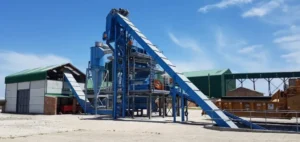Brazil’s biodiesel industry is calling for urgent reinforcement of regulatory controls and stable public funding to ensure compliance with the mandatory biodiesel blend in diesel, recently raised to 15%. Industry representatives warn of increasing fraud when biodiesel costs rise and oversight mechanisms are lacking.
Price surge heightens fraud risks
Since the new blend threshold took effect on August 1, biodiesel prices delivered to Paulinia rose 14%, reaching BRL6,387/cu m on October 14, up from BRL5,603/cu m in late July. According to the Instituto Combustível Legal (ICL), this price gap creates fertile ground for regulatory evasion, particularly when the cost difference between diesel and biodiesel exceeds BRL0.20 per litre.
In December 2024, the suspension of the fuel quality monitoring programme had already led to a drop in compliance with blend mandates, from 98% to 92%. The Agência Nacional do Petróleo, Gás Natural e Biocombustíveis (ANP) again halted the programme in July 2025, citing budget restrictions, before resuming it in August alongside the increase in the biodiesel blend.
Distributors wary of unfair competition
Despite the reinstated monitoring, major distributors remain concerned about losing market share to competitors circumventing blend obligations. According to ICL director Carlos Faccio, the absence of oversight fuels fraudulent practices, especially during periods when cost margins widen between fossil and renewable fuels.
ANP director Pietro Mendes called for advanced legislation to strengthen electronic invoice tracking of biodiesel producers, enforce penalties for non-compliance, and ensure continued funding for traceability projects.
Legal challenges hamper market control
Industry representatives also criticised judicial rulings that allow certain fuel distributors to continue operations despite failing to meet decarbonisation targets under the RenovaBio programme. Currently, any company selling to a sanctioned distributor risks fines of up to BRL500mn ($90mn).
Federal Deputy Alceu Moreira, president of the FPBio congressional caucus, confirmed plans to advance legislation supporting the “Fuel of the Future” energy strategy. However, he warned of potential corruption risks in the absence of effective enforcement.






















